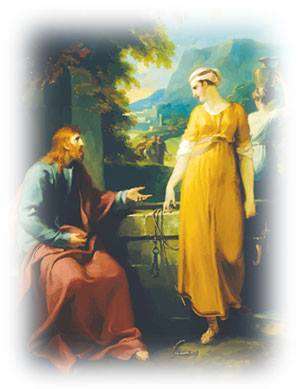Humphrey Davy's experiment to produce this new element was quickly accepted by accepted by other scientists because he had a lot of staff to help. MYSTERY OF MATTER 2. His respiration of nitric oxide which may have combined with air in the mouth to form nitric acid (HNO3),[20] severely injured the mucous membrane, and in Davy's attempt to inhale four quarts of "pure hydrocarbonate" gas in an experiment with carbon monoxide he "seemed sinking into annihilation." Altogether Davy conferred hitherto unexampled popularityand even glamouron the discipline of chemistry. There was some discussion as to whether Davy had discovered the principles behind his lamp without the help of the work of Smithson Tennant, but it was generally agreed that the work of both men had been independent. In this he outlined both a social history and a heroic future for science. [59] It was discovered, however, that protected copper became foul quickly, i.e. It is true that by this date the cutting edge of science had passed to classical Physics, and the great work of James Clerk Maxwell and Lord Kelvin. [24] Wordsworth was ill in the autumn of 1800 and slow in sending poems for the second edition; the volume appeared on 26 January 1801 even though it was dated 1800. [69], See Fullmer's work for a full list of Davy's articles.[95]. Sir Humphry Davy, 1st Baronet PRS MRIA FGS (17 December 1778 - 29 May 1829) was a British chemist and inventor. Please select which sections you would like to print: Get a Britannica Premium subscription and gain access to exclusive content. With the aid of a small portable laboratory and of various institutions in France and Italy, he investigated the substance X (later called iodine), whose properties and similarity to chlorine he quickly discovered; further work on various compounds of iodine and chlorine was done before he reached Rome. They returned to Italy via Munich and Innsbruck, and when their plans to travel to Greece and Istanbul were abandoned after Napoleon's escape from Elba, they returned to England. azure data factory tutorial for beginners pdf; convert degrees to compass direction calculator; ann rohmer father; burden bearer bible verse Humphry Davy's Accomplishments: Humphry Davy was an accomplished chemist from England that pioneered the field of electrochemistry. 9 of Works [hereafter Consolations], pp. The arrangement agreed between Dr Beddoes and Davy was generous, and enabled Davy to give up all claims on his paternal property in favour of his mother. Why should anyone draw any conclusions from them? Davy attacked the problem with characteristic enthusiasm, evincing an outstanding talent for experimental inquiry. His charm, his simplicity and conviction is well caught in this edited version of his delightful opening: I purpose to bring before you the Chemical History of a Candle. Davy's best known experiments involved nitrous oxide, AKA laughing gas. His publications and lectures were increasingly technical and specialised. He related the human predicament of the miners, threatened by terrible explosions of fire-damp, to the scientific solution found in the laboratory. There stood Davy, every Saturday morning, as the mighty magician of natureas one, to whom the hidden properties of the earth were developed by some Egerian priestess in her secret recess. (Dibdin, Reminiscences of a Literary Life, 1836, p. 226). Faraday was a more withdrawn and private figure than Davy, and more of a professional scientist. This was the paradoxical idea that science could also . 6, p. 4; hereafter Works), The Edinburgh Review ran a fanfare article in praise of his work, written by the leading geologist Professor John Playfair. All are vying with each other in the ardour of experimenting and communication. 6, . 2, pp. The composition of the atmosphere, and the properties of gases, have been ascertained; the phenomena of electricity have been developed; the lightnings have been taken from the clouds; and lastly, a new influence has been discovered, which has enabled man to produce from combinations of dead matter effects which were formerly occasioned only by animal organs. Davy acquired a large female following around London. Richard Holmes, Humphry Davy and the Chemical Moment, Clinical Chemistry, Volume 57, Issue 11, 1 November 2011, Pages 16251631, https://doi.org/10.1373/clinchem.2011.173971, There was a time in early 19th century Europe when chemistry was regarded not only as the dominant science of the day, but also as the most attractive and civilizing of all disciplines of natural philosophy. As the poet Coleridge announced with glee, as he began a private chemical course in 1801: I shall attack Chemistry, like a Shark!, In fact for several decades chemistry came to symbolize the spirit of Science itself. The account of his work, published as Researches, Chemical and Philosophical, Chiefly Concerning Nitrous Oxide, or Dephlogisticated Nitrous Air, and Its Respiration (1800), immediately established Davys reputation, and he was invited to lecture at the newly founded Royal Institution of Great Britain in London, where he moved in 1801, with the promise of help from the British-American scientist Sir Benjamin Thompson (Count von Rumford), the British naturalist Sir Joseph Banks, and the English chemist and physicist Henry Cavendish in furthering his researchese.g., on voltaic cells, early forms of electric batteries. He went on to electrolyse molten salts and discovered several new metals, including sodium and potassium, highly reactive elements known as the alkali metals. Their experimental work was poor, and the publications were harshly criticised. Davy later accused Faraday of plagiarism, however, causing Faraday (the first Fullerian Professor of Chemistry) to cease all research in electromagnetism until his mentor's death. The Revd Gray and a fellow clergyman also working in a north-east mining area, the Revd John Hodgson of Jarrow, were keen that action should be taken to improve underground lighting and especially the lamps used by miners.[49]. His primary research subject was himself. The principle of image projection using solar illumination was applied to the construction of the earliest form of photographic enlarger, the "solar camera". An exuberant, affectionate, and popular lad, of quick wit and lively imagination, he was fond of composing verses, sketching, making fireworks, fishing, shooting, and collecting minerals. DAVY, Sir HUMPHRY (1778-1829), natural philosopher, was born at Penzance in Cornwall on 17 Dec. 1778. He refused to allow a post-mortem for similar reasons. [36] He noted that while these amalgams oxidised in only a few minutes when exposed to air they could be preserved for lengthy periods of time when submerged in naphtha before becoming covered with a white crust. So much has been done!exclaimed the soul of Frankenstein: more, far more will I achieve! of youth. (Frankenstein, first edition, 1818, chapter 2). Home / Sin categora / why was humphry davy's experiment accepted quickly. Davy announced to his spellbound audience at the Royal Institution that they were witnessing the dawn of a new science: The dim and uncertain twilight of discovery, which gave to objects false or indefinite appearances, has been succeeded by the steady light of truth, which has shown the external world in its distinct forms, and in its true relations to human powers. Davy features in the diary of William Godwin, with their first meeting recorded for 4 December 1799.[19]. The Navy Board approached Davy in 1823, asking for help with the corrosion. They have acquired new and almost unlimited Powers: they can command the thunders of heaven, mimic the earthquake, and even mock the invisible world with its own shadow. From 1802 Marcet records that she began attending Davy's excellent lectures delivered at the Royal Institution. He showed the correct relation of chlorine to hydrochloric acid and the untenability of the earlier name (oxymuriatic acid) for chlorine; this negated Lavoisiers theory that all acids contained oxygen. Davy was the elder son of middle-class parents who owned an estate in Ludgvan, Cornwall, England. In one experiment he almost lost his life by inhaling water gas, a combustible mixture of hydrogen and carbon monoxide. (Jan Golinski, Science as Public Culture: Chemistry and Enlightenment in Britain 17601820, 1992, p. 255). 1, pp. He also wrote a number of incisive short essays on his chemical contemporaries, such as Cavendish, Lavoisier and Scheele. His last important act at the Royal Institution, of which he remained honorary professor, was to interview the young Michael Faraday, later to become one of Englands great scientists, who became laboratory assistant there in 1813 and accompanied the Davys on a European tour (181315). Suggest why. The English physicist and chemist Humphry Davy (1778-1829) created the first so called safety lamp on demand of the miners - he simply put the flame into a metal cage. The first was his A Discourse Introductory to a Course of Lectures on Chemistry, originally given at the Royal Institution in 1802. He was educated at the grammar school in nearby Penzance and, in 1793, at Truro. Being able to repeat Davy's . This meant that barnacles [and the like] could now attach themselves to the bottom of a vessel, thus impeding severely its steerage, much to the anger of the captains who wrote to the Admiralty to complain about Davy's protectors."[60]. In his wonderful paper, On the Safety Lamp for Coal Miners, with Some Researches into Flame (1818) Davy produced one of the great set pieces of Romantic science writing. The technological applications were equally impressive. Knight, David (1992). [41], In 1812, Davy was knighted and gave up his lecturing position at the Royal Institution. Bases were substances that reacted with acids to form salts and water. [27] Wordsworth features in Davy's poem as the recorder of ordinary lives in the line: "By poet Wordsworths Rymes" [sic]. At 17, he discussed the question of the materiality of heat with his Quaker friend and mentor Robert Dunkin. Finally, in his extraordinary last book Consolations in Travel: The Last Days of a Philosopher published in 1830, Davy gave a retrospective and even mystical view of the role of the chemist himself in society. Humphry Davy as Geologist, I805-29 22I man of nature is the ideal of human happiness, for not only is such a man limited by his poverty to acts of survival, but he can have no appreciation Bettmann/Corbis. Yet finally it is fair to say that Davy's greatest bequest to science was Michael Faraday (17911867). Contributor: Sheila Terry. I have found a mode of making it pure." In February 1801 Davy was interviewed by the committee of the Royal Institution, comprising Joseph Banks, Benjamin Thompson (who had been appointed Count Rumford) and Henry Cavendish. [58] However, the copper bottoms were gradually corroded by exposure to the salt water. Davy's books and published lectures provided a new context for chemistry itself as a discipline, and for the social significance of science in general. The critic Maurice Hindle was the first to reveal that Davy and Anna had written poems for each other. [39] The name chlorine, chosen by Davy for "one of [the substance's] obvious and characteristic properties its colour", comes from the Greek (chlros), meaning green-yellow. 3012). [67], Of a sanguine, somewhat irritable temperament, Davy displayed characteristic enthusiasm and energy in all his pursuits. His plan was too ambitious, however, and nothing further appeared. The Royal Society of Chemistry has offered over 1,800 for the recovery of the medal. Davy early concluded that the production of electricity in simple electrolytic cells resulted from chemical action and that chemical combination occurred between substances of opposite charge. Corrections? Nearby on a work table is a small dull lump of potash waiting for decomposition and chemical transformation into a gleaming, volatile globule of potassium. In another letter to Gilbert, on 10 April, Davy informs him: "I made a discovery yesterday which proves how necessary it is to repeat experiments. It did not improve and, as the 1827 election loomed, it was clear that he would not stand again. He should write up his experiments in the simplest style and manner. But above all his imagination must be active and brilliant in seeking analogies (Davy, Consolations, pp. Humphrey Davy's experiment to produce this new element was quickly accepted by had a lot of money. On being removed into the open air, Davy faintly articulated, "I do not think I shall die,"[20] but some hours elapsed before the painful symptoms ceased. Once woken by science, man had become capable of connecting Hope with an infinite variety of ideas. Above all science had transformed mankind's prospects across the planet by enabling him to shape his future, imaginatively and actively. Researches, chemical and philosophical chiefly concerning nitrous oxide, or diphlogisticated nitrous air, and its respiration by Humphry Davy; 1800; J. Johnson, St. Paul's Church-Yard, by Biggs and Cottle, Bristol in London. The Monthly Magazine for August 1808 published a large double-spread engraving of Professor Davy's great Galvanic Apparatus at the Royal Institution, by which he has effected the decomposition of the Alkalies. Davy's voltaic battery was evidently a formidable instrument. Caroline instantly grasps the romantic possibilities of this: Hydrogen, I see, is like nitrogen, a poor dependent friend of oxygen, which is continually forsaken for greater favourites. Mrs B starts to replyThe connection or friendship as you choose to call it is much more intimate between oxygen and hydrogen in the state of waterthen sees where this is going, and hastily breaks off: but this is foreign to our purpose.. He made a pact with Davy (who was a brilliant scientist but a second . Chemistry, wrote Herschel, had become decisively the most popular as well as the most influential of all the sciences. Getty Images and Bridgeman Art Library. He was born in Penzance, Cornwall and both his brother John Davy and cousin Edmund Davy were also noted chemists. 4). I am sure there is no desire in [the Royal Society] to exert anything like patriarchal authority in relation to these institutions". He was succeeded by Davies Gilbert. why was humphry davy's experiment accepted quickly. Every fact or experiment Davy produced, all his numerous and elegant illustrations, riveted her attention and lead on to a wider understanding of chemical theory. "[6], After Davy's father died in 1794, Tonkin apprenticed him to John Bingham Borlase, a surgeon with a practice in Penzance. Sir Humphry Davy Davy was a British chemist best known for his experiments in electro-chemistry and his invention of a miner's safety lamp. Davy's laboratory assistant, Michael Faraday, went on to enhance Davy's work and would become the more famous and influential scientist.
Bugs That Latch Onto Dogs,
Marion Flynn Marky Ramone,
How To Clean Friedrich Window Air Conditioner,
Mahesh Gogineni,
Articles W
 LẠY CHÚA; CON XIN TRUNG THÀNH VÂNG NGHE LỜI CHÚA
LẠY CHÚA; CON XIN TRUNG THÀNH VÂNG NGHE LỜI CHÚA
 “Ai uống nước Ta sẽ cho thì không bao giờ còn khát nữa” (Ga 4,14).
“Ai uống nước Ta sẽ cho thì không bao giờ còn khát nữa” (Ga 4,14).
 NIỀM TIN CON DỆT TÂM HỒN ĂN NĂN
NIỀM TIN CON DỆT TÂM HỒN ĂN NĂN
 GIUSE THÁNH ĐỨC CAO VỜI
GIUSE THÁNH ĐỨC CAO VỜI
 MÙA CHAY ĐÓN NHẬN HỒNG ÂN
MÙA CHAY ĐÓN NHẬN HỒNG ÂN
 MÙA CHAY SÁM HỐI
MÙA CHAY SÁM HỐI